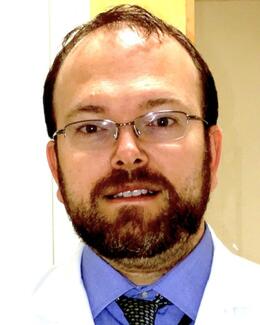Penn. Schools Ready for Emergencies
The Valley News-Dispatch, Tarentum, Pa.
Feb. 15—Long before Wednesday's mass school shooting in Florida, more and more Alle-Kiski Valley police and teachers were signing up for Stop the Bleed.
The national program prepares people to handle life-threatening bleeding before paramedics arrive.
"You are much more likely to encounter the need to control bleeding than someone who has cardiac arrest and needs CPR," said David Bertoty, a Stop the Bleed teacher and coordinator.
Untreated arterial bleeding can kill within 3 minutes.
"This is just as effective for someone who falls through a glass window and is bleeding as well as mass casualties like you see at a school shooting," said Bertoty, who is also clinical director of emergency and trauma services at UPMC Presbyterian hospital.
The roughly 90-minute class shows how and when to use tourniquets, when and how to pack wounds, and other ways to stop dangerous bleeding.
In addition to teaching people to handle severe bleeding, "our goal is to get a kit into every school building," he said. Many police officers and troopers are trained or have the training scheduled. Bertoty hopes other people get the training, too.
Anyone can sign up for the class and interested people can become trainers, too.
Bertoty said at least 20 lives were saved by bystanders in the aftermath of the Boston Marathon terrorist attack simply by helping to slow or stop bleeding from wounds.
So far, the anti-bleeding kits are in about 345 school buildings where teachers and staffs have completed training in about 70 school districts in Western Pennsylvania, Bertoty said.
The Jeannette, Hempfield Area and North Allegheny school staffs are among those trained.
About 90 teachers received the training and tourniquet kits are in the district's buildings, said Jeannette substitute Superintendent Matt Jones.
At North Allegheny, the district's nurses are training hundreds of teachers.
"Anyone can learn the lifesaving steps of Stop the Bleed," said Bridgett Bilenski, certified school nurse at North Allegheny's Franklin Elementary and Marshall Middle schools.
Stop the Bleed is "an excellent way to educate the general public on how to help as a bystander in critical life-threatening situations, so that more lives can be potentially saved," she said.
The Hempfield Area staff participated in January, according to Superintendent Tammy Wolicki. A Forbes Hospital surgeon gave a group presentation and then participants formed small groups for hands-on practice, where they learned how to apply a tourniquet and pack a wound. Wolicki said in an email that the staff's feedback was overwhelmingly positive.
She said they feel prepared to respond to an emergency at school, home, a mall, and other locations.
UPMC and Copeland Regional Trauma Council staff are preparing teachers and police in the area from Altoona west to the Ohio line, said Bertoty, of North Huntington.
On Monday, Bertoty is scheduled to take the program to about 80 Leechburg High school teachers and staff.
Allegheny Health Network staff presented the class for Apollo-Ridge School District employees last October. About 100 teachers and staff received the training.
"There is a bleeding kit in every building," said John Skiba, the district's director of school safety and student services. "And principals also bought extra kits."
Large numbers of police are getting the training, too.
Stop the Bleed was taught to about 900 Pittsburgh police officers last year, said Lt. Matt Lackner.
In addition, about 4,000 state troopers statewide are either in classes now or registered for them, said Capt. Steve Ignatz, who commands the troop based in Butler.
The Greensburg-based state police troop was the first in the state to schedule the training, said Capt. Tom Dubovi.
"We have one more session and we will have the entire troop completed," Dubovi said.
Bertoty said dozens of smaller police departments have also learned Stop the Bleed including officers in Apollo, Leechburg, Gilpin, Cranberry and the South Hills.
Lower Burrell police officers are scheduled to get the training March 22.
"We planned this quite some time ago—long before the latest school shooting," Chief Tim Weitzel said.















